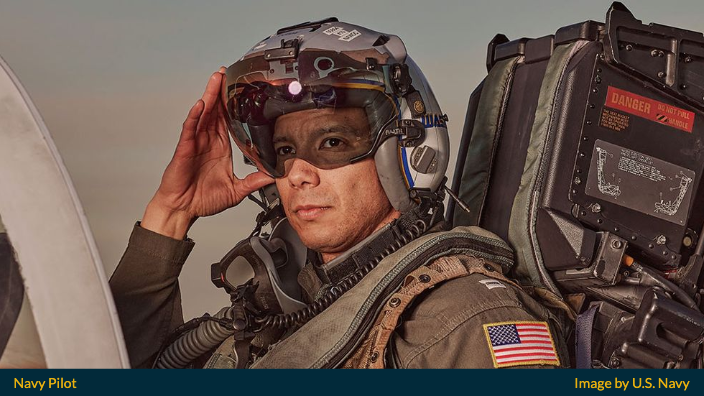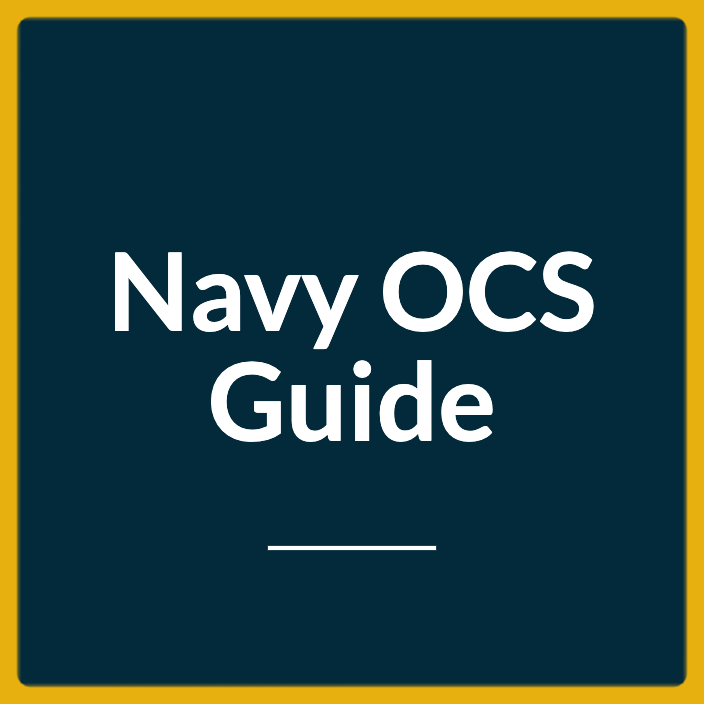Last Updated on August 30, 2023
Can one become a Navy pilot while wearing glasses? It is an understandable question. What are the requirements to become a Naval pilot and can it be done with eyewear?
This article answers those questions and looks into the possibilities, including if contacts or eye surgery could be solutions.
So, are glasses-clad pilots able to fly? Read on to find out.
Is It Permissible to Wear Glasses While Serving as a Naval Pilot?
It is possible to be a Naval Aviator while wearing glasses. As long as the vision corrected with glasses or naturally is at 20/20, it will not result in disqualification. The Department of Defense (DoD) has set the standards for corrective lenses that are used.
Flight personnel who are classified as Class II and III may undergo laser eye surgery, such as LASIK or PRK, if corrective lenses cannot correct their vision. However, certain mission requirements and the type of operation may impact when such a procedure may take place.
It is important for pilots to use protective eyewear while in flight in order to avoid potential debris or dust particles that may enter the eye area. This safety measure helps ensure all pilots stay safe during their missions.
Contacts may be acceptable for Naval Aviators. Glasses and laser eye surgery do not disqualify candidates in the Navy. It is possible to become a Navy pilot with the right corrective lenses and protective eyewear, no matter how poor your vision is.
Further information can be found below whether contacts are allowed for Naval Aviators.
Is It Possible to be a Navy Pilot with Contacts?

Navy pilots may use glasses or contact lenses. The basic requirements for pilot candidates include height between 5 feet 2 inches and 6 feet 5 inches, and weight under 245 pounds or over 103 pounds.
Pilots who had Lasik surgery are also eligible. Depending on the mission type, some types of glasses may be permitted.
The Navy will assess each candidate’s suitability for flight duties, considering if the use of prescription lenses is necessary.
The qualifications, training and corrective lenses needed for a person to be eligible for Navy pilot service will be addressed in a future section.
Navy Pilot Vision Requirements
The Navy requires recruits to take an eye exam to check their vision. 20/20 vision is preferred, but those wearing glasses or contact lenses can still join. Glasses must comply with Navy requirements and feature protective measures like light-responsive lenses and glare reduction tech.
NAVMED P-117 is the U.S. Navy instruction which sets out the eyesight standards for Navy pilots. These must include visual acuity and color perception for high-performance aircraft use, as well as night vision assessment.
This document outlines the minimum acceptable corrected and uncorrected vision requirements to qualify as a pilot in the Navy, plus extra information relating to corrective eye surgery and procedures for re-testing.
All candidates must adhere to these standards before being approved by their commander for pilot positions in the Navy.
Naval Aviators must pass physical examinations that include vision tests annually in order to remain qualified to pilot. They must also fulfill periodic ground and flight training requirements. The results of the physical tests help decide if glasses or contact lenses are needed for pilot duties.
Navy pilots must have a certain level of vision to carry out their duties safely. Prospective pilots should note that having excellent eyesight is desired, however glasses are permitted.
The Navy’s vision standards and regular eye exams ensure their pilots have optimal visibility and protection when flying. Is it possible to be a Navy fighter pilot with glasses? Read on to find out.
Is It Possible to be a Navy Fighter Pilot with Glasses?
There is no definitive answer whether a Navy fighter pilot can be permitted to have eyeglasses. Factors such as the type of glasses being used and the individual’s vision may be taken into consideration, with perfect 20/20 vision typically being necessary for all naval pilots.
Sometimes, though, Commanding Officers have approved pilots to use eyeglasses if their vision is corrected to 20/20 with lenses.
To become a fighter pilot in the Air Force or Navy, a physical examination is required, which will assess any issues of nearsightedness, farsightedness, astigmatism, and color blindness.
If these issues can be treated with lenses or contact lenses, an individual may still pursue this role. However, if corrective surgery such as Lasik or PRK is needed to correct vision, then they may not be eligible.
Pilots must meet the 20/20 vision requirement to join the military. However, certain branches may make exceptions for corrective lenses. Before applying for flight school, it is important to contact your desired service to check if corrective lenses are permitted.
It is possible to join the Navy or Air Force as a fighter pilot with corrective lenses and 20/20 vision, but it is essential to verify the requirements and regulations of each branch before pursuing this career path.
Is It Possible for Navy Pilots to Undergo Eye Surgery?
U.S. Navy pilots must adhere to strict vision requirements. Eligibility to become a Naval Aviator requires 20/70 vision in each eye, with or without corrective lenses. This is equivalent to being able to view what a person with normal vision can at 70 feet, from 20 feet.
Eye surgery is an option but not recommended as it may not yield satisfactory results and could cause disqualification from service.
The Navy has strict vision requirements and may not accept corrective glasses or contact lenses for their pilots. Eye surgery could be an option, however, there is a risk of disqualification if the results are unsuitable.
More Information
Please note that this information may change anytime without notice. Contact your local Naval Officer Recruiter for the most up-to-date information regarding Navy Pilot jobs.
You will also find helpful information in this guide: Become a U.S. Naval Aviator.
Hope you found this helpful to your research and career planning.


